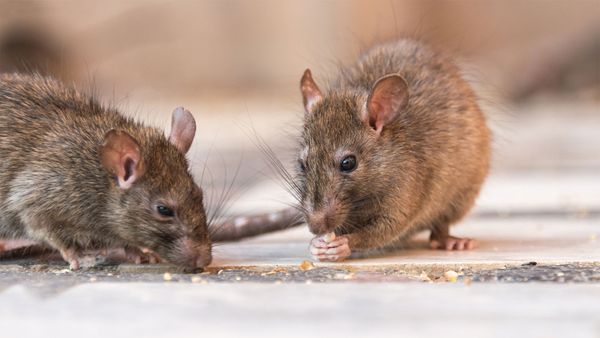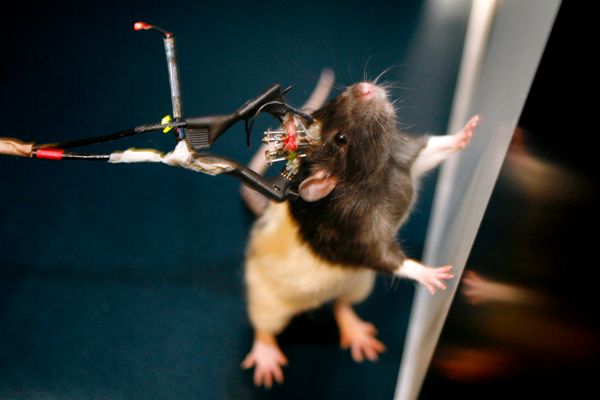
It's not by accident that there are so many rats all over the world. Despite our best efforts at eradicating them, rats keep outwitting us. But why? That's the subject of an episode from the brand-new podcast Part-Time Genius, hosted by Will Pearson and Mangesh (Mango) Hattikudur. In their episode "Why have rats outsmarted us for so long?", the two get to know the Norway rat, also known less flatteringly, as the common brown rat or sewer rat.
While brown rats have been around forever, they weren't always found everywhere on Earth. They first called Southeast Asia home, then migrated to China and Russia. Eventually they began hopping aboard ships, which ferried them to Europe, and then North America in the 1700s.
Advertisement
Scientists in the U.S. only began studying rats around World War II, when authorities feared the Nazis might use the pests to spread disease throughout Europe. What they've discovered during the last few decades is that rats are perfectly engineered to outlast humans.
To start with, they're breeding machines. The co-hosts point out that one pair of brown rats can produce 15,000 descendants annually. They also can be dropped 50 feet (15 meters) — that's five stories — without injuring themselves. And they're highly adaptable. If they're born in alley behind an Indian restaurant, for instance, they'll develop a preference for samosas and curries. And although they don't like to stray more than 65 feet (20 meters) from their nests, brown rats can roam great distances if needed, and even tread water for three days. They're also very suspicious of anything new. All these factors make pest control exceptionally difficult.
In addition to their physical superpowers, rats also possess some interesting humanlike qualities. They're very cooperative with each other, for one thing. Hattikudur says that according to a 2012 study, rats were offered a chocolate treat or the opportunity to free another rat. The rats repeatedly freed the other rat, then shared the treat. And according to research by Harvard scientists, their brains are a lot like the human brain, filled with interconnected, constantly chattering neurons.
No matter how much rats resemble humans, they do need to be controlled, as they can spread a wealth of serious and even fatal diseases to us. The best hope right now? Birth control. In August 2016, the Environmental Protection Agency approved a sweet, liquid bait that triggers early menopause in females and impairs sperm development in males. When rats consume the bait, breeding becomes difficult, if not impossible.
This episode of Part-Time Genius also features a visit from writer A.J. Jacobs, a quiz between two librarian contestants and even some rat poetry! Part-Time Genius is the newest venture from Will Pearson and Mangesh Hattikudur, who co-founded the magazine and website Mental Floss. The show is based on the premise that people are curious about a lot of things but only have so much time to spend on a subject.
Episodes will look at topics from history, science or pop culture. Regular features include a quiz contest between two listeners, interviews with scientists, comedians or authors, and a "fact-off" segment featuring leftover info from their show research that didn't really fit in with the main topic but was too good to leave out — like the fact below.
Advertisement

